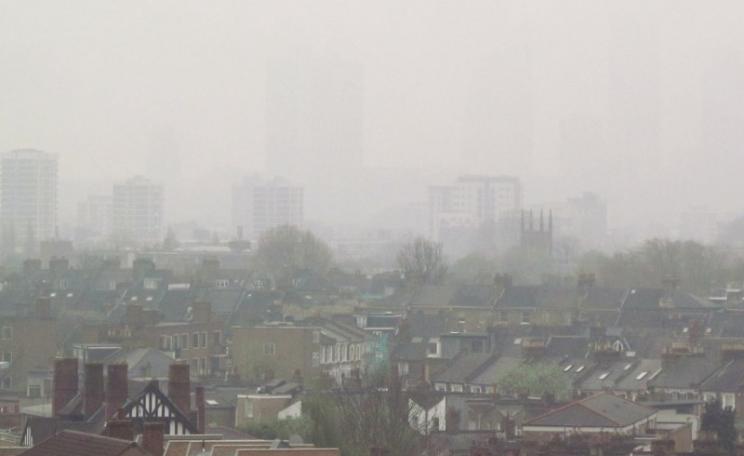A child growing up with asthma in a polluted city will have worse symptoms that will limit their potential to train.
Sports training grounds in English cities are suffering from polluted air - which could be hitting youngsters' sporting potential, a report has warned.
Analysis of 94 sports grounds across five UK cities suggests that more than a quarter of them, 28 sites, exceeded World Health Organisation (WHO) recommended limits for PM2.5 particles or legal limits for nitrogen dioxide.
More than half had annual levels for particulate matter close to or at WHO's guidelines for the safe limits, according to the report, launched as part of the Breathe GB campaign to highlight pollution's impact on athletes of the future.
Asthma
The study analysed air pollution levels at training grounds in London, Greater Manchester, Sheffield, Nottingham and Birmingham, and spoke to respiratory consultants and experts in physical education.
Training grounds assessed included sites where sports stars such as Mo Farah (pictured), David Beckham, Raheem Sterling and Christine Ohuruogu trained, The Air Team campaign group behind the report said.
Researchers warn that babies and children are especially vulnerable to air pollution, as their lungs are still developing and they breathe more rapidly than adults, which increases their exposure to toxic pollutants.
Air pollution can stunt lung development and put youngsters at a physical disadvantage in sport and physical activity, while exercising in toxic air can expose lungs more to pollutants, the report said.
Children living and playing sport in deprived areas are particularly vulnerable to air pollution, which can cause asthma and limit their ability to train, the report suggests.
Robust
Dr Ian Mudway, senior lecturer in respiratory toxicology at the Department of Analytical and Environmental Sciences, King's College London, said: "A child growing up with asthma in a polluted city will have worse symptoms that will limit their potential to train."
He added: "We need children to be going out and exercising, and we need them to be exercising in air that's as clean as possible.
"Training and performing exercise under the best possible conditions is better for their health and will encourage them to exercise more."
All the sports grounds that were in areas that exceeded the limits were in London, apart from Perry Park in Birmingham and the University of Salford Sports Centre in Salford, Greater Manchester, the report said.
The Air Team is calling for sports organisations, MPs, schools and athletes to back its Breathe GB campaign for robust legislation to cut air pollution and boost British sport.
Funding
It wants to see clean air zones in all of the UK's major cities and for the government to adopt the WHO guideline limits as a legal minimum by 2030. Anella Wickenden from The Air Team said: "Lots of us worry about the impacts of air pollution on our children's lungs.
"But we might not think about how this affects their ability to play sport and stay fit. There are huge benefits to cleaning up our air, from your local school day to Team GB's performance at the Olympics. We want the government and city mayors to recognise these benefits and take immediate action to clean up our air."
David Renard, the Local Government Association's environment spokesman, said: "This report highlights the air pollution emergency we are facing and reinforces the critical need for councils to be able to build on their key role in tackling air pollution.
"Many have already introduced a range of measures to tackle air pollution, such as Clean Air Zones, encouraging the use of electric vehicles with recharging points and promoting cycling.
"Councils want to work with the government to reduce the impact of harmful emissions on the health of our communities, but for air quality plans to be successful, they need to be underpinned by local flexibility and sufficient funding."
This Author
Emily Beament is the PA environment correspondent. Image: Al King






